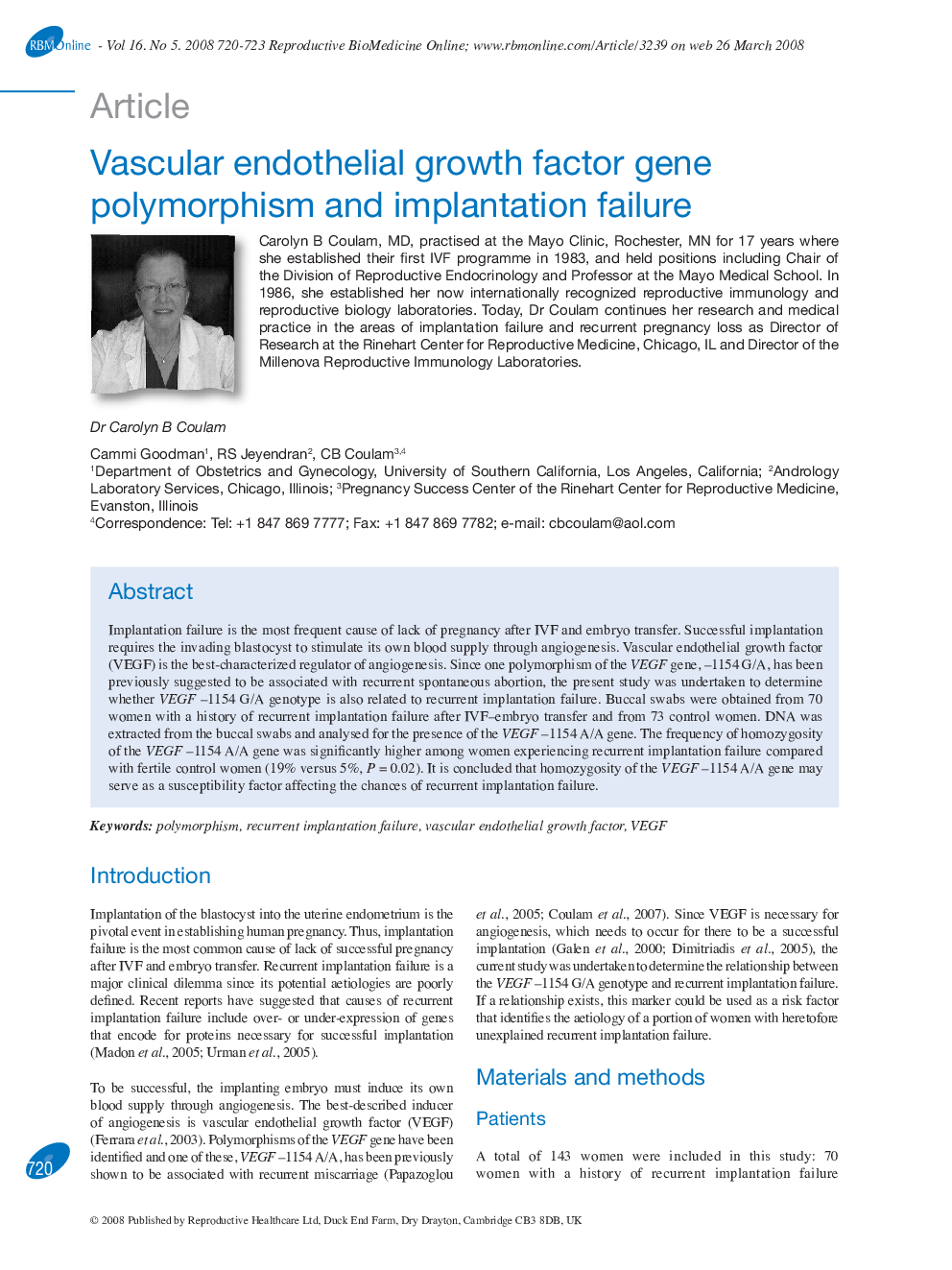| Article ID | Journal | Published Year | Pages | File Type |
|---|---|---|---|---|
| 3972460 | Reproductive BioMedicine Online | 2008 | 4 Pages |
Implantation failure is the most frequent cause of lack of pregnancy after IVF and embryo transfer. Successful implantation requires the invading blastocyst to stimulate its own blood supply through angiogenesis. Vascular endothelial growth factor (VEGF) is the best-characterized regulator of angiogenesis. Since one polymorphism of the VEGF gene, –1154 G/A, has been previously suggested to be associated with recurrent spontaneous abortion, the present study was undertaken to determine whether VEGF –1154 G/A genotype is also related to recurrent implantation failure. Buccal swabs were obtained from 70 women with a history of recurrent implantation failure after IVF–embryo transfer and from 73 control women. DNA was extracted from the buccal swabs and analysed for the presence of the VEGF –1154 A/A gene. The frequency of homozygosity of the VEGF –1154 A/A gene was significantly higher among women experiencing recurrent implantation failure compared with fertile control women (19% versus 5%, P = 0.02). It is concluded that homozygosity of the VEGF –1154 A/A gene may serve as a susceptibility factor affecting the chances of recurrent implantation failure.
